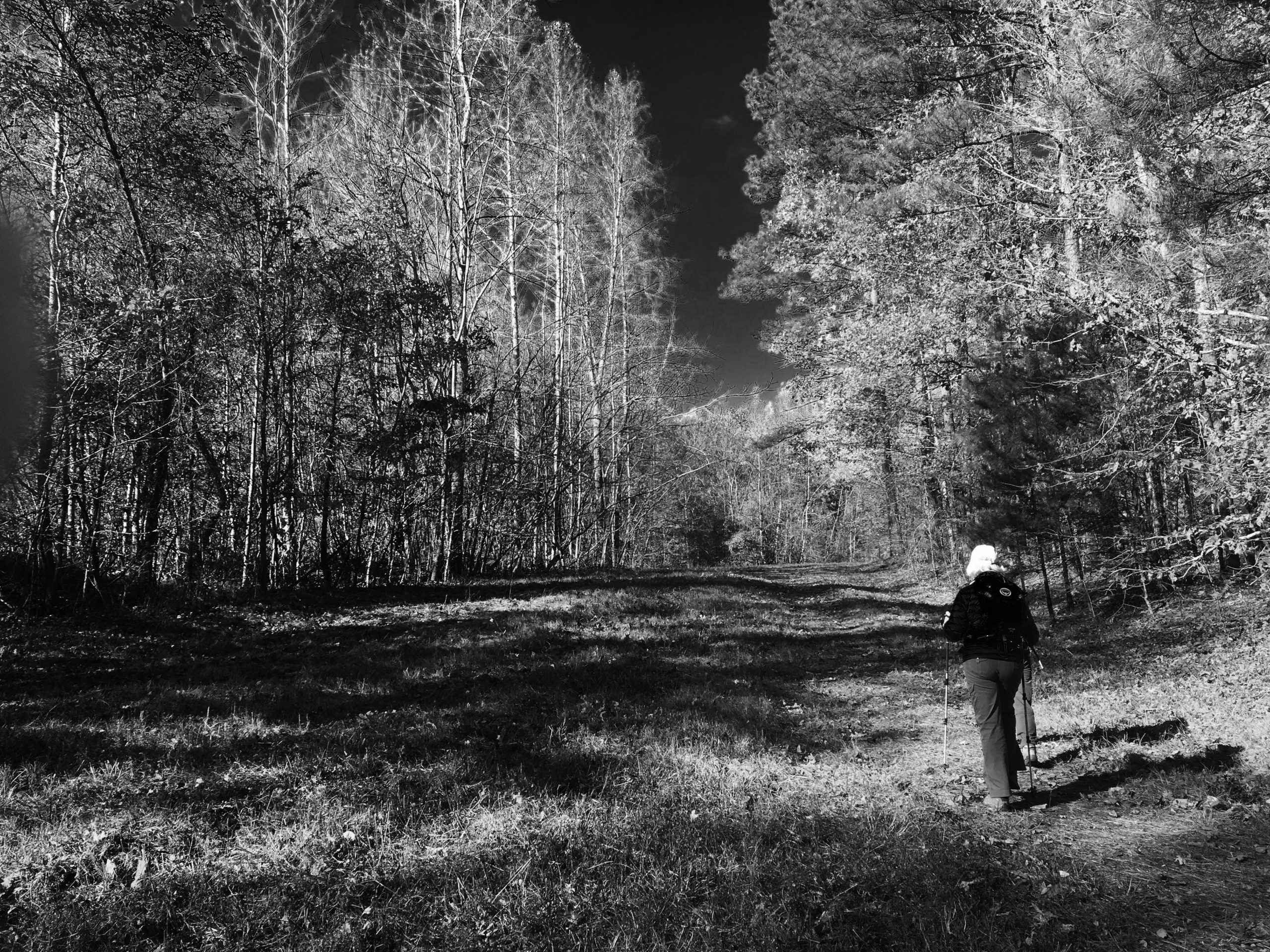I don’t recall where I was headed, but this wasn’t it. I was on a road I was somewhat familiar with. Then I took a right, onto a dirt road and thought I might wings it. That rarely works out, and soon it was clear it wouldn’t this time, either. This was long before Siri, long before the government made its global positioning system useful to civilians. I was on my own.
After two or three more turns onto roads of diminishing passabiity, the road narrowed into a path. I got out and started to walk. And then I stopped, transfixed, transported.
The scene was notable for its simple beauty. To the right of the path ran a mountain creek, its volume diminished by the dry fall, yet its soft gurgle was audible in the still air. Aspen dominated, their brilliant yellow leaves shimmered by the periodic breeze slipping down the front range. A stentorian cottonwood loomed 30 yards ahead, the understory and ground cover a mix of greens, even this deep into fall. For a moment, I had no clue where on Earth I was. I had no clue of anything, my mind washed, cleared, blank. It was, I would later realize, bliss.
It’s a place I frequently revisit, this vacuum at the foot of Colorado’s front range somewhere just west of Fort Collins. It’s the place I often go when I need to go somewhere, but can’t.
In “Desert Solitaire,” Edward Abbey talks about “the ideal place, the right place, the one true home.” For Abbey, his one true home was the desert Southwest, the Moab area in particular. For Abbey, the discovery of his “right place” came the first morning of his six-month stint as a seasonal park ranger “when I stepped out of my trailer — my caravan — to watch for the first time in my life the sun come up over the hoodoo stone of Arches National Monument. It was the plan that would mold Abbey and guide him as an environmental activist and anarchist for the rest of his life.
These places, these moments, can have a profound and lasting impact on our lives. Profound not in a “save-the-planet” way necessarily, but in a grounding way. The place you can retreat when you need to regroup. In reality when you can, in spirit when you can’t.
Owning such a place is one reason we explore. We explore to escape, and when we’re lucky, we stumble into these prolonged escapes. Escapes, because you needn’t be limited to one. Sometimes at my desk I slip off to the winter mountaintop meadows of Doughton Park, sometimes to remote Celo Knob, sometimes to the Bertram Trail and its scrambling ascent up Ledbetter Creek up to Cheoah Bald.
I know these right places immediately. I stop as I did that fall day nearly 40 years ago outside Fort Collins and am, for a moment, nowhere else — the ultimate destination.
